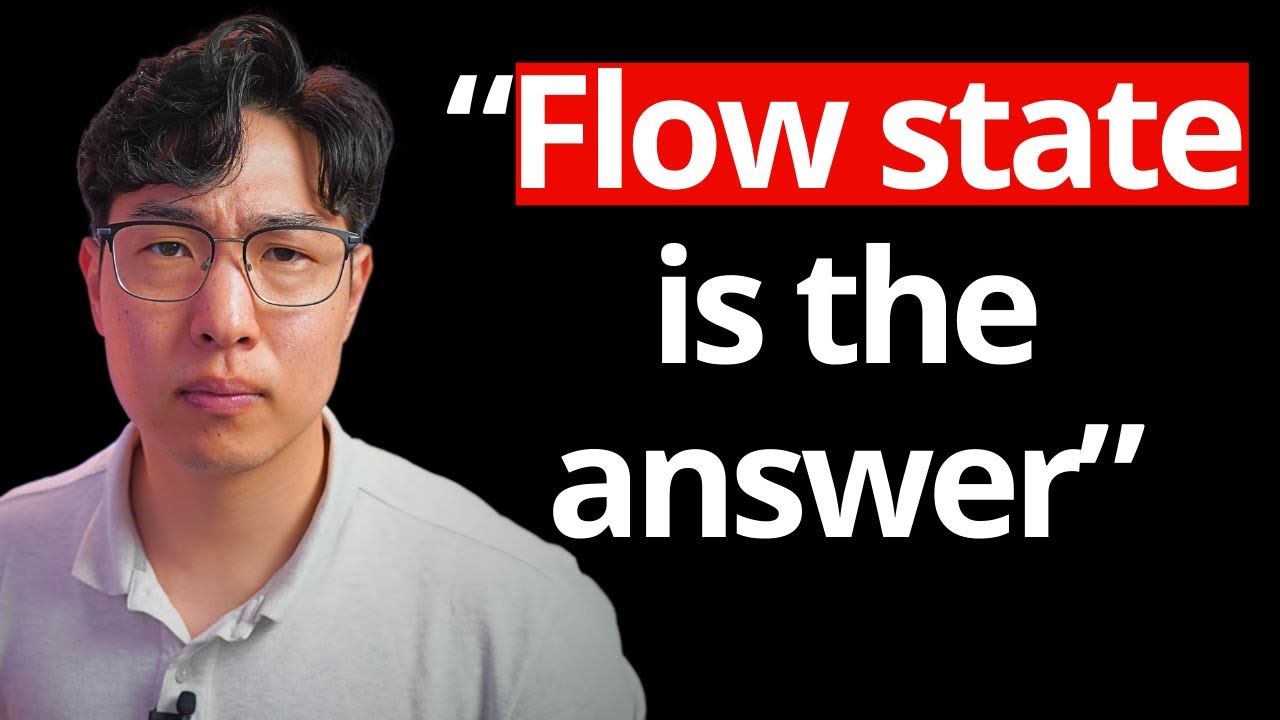How I stay focused for long periods of time (and stop infinite scrolling)
Summary
TLDRThis video offers practical strategies for maintaining focus and combating the urge to endlessly scroll. The creator shares five effective techniques, including eliminating distractions, identifying and managing inner discomfort, setting implementation intentions, optimizing energy levels, and establishing a consistent routine. By applying these methods, viewers can enhance productivity and make significant progress on personal goals and hobbies.
Takeaways
- 😀 The video discusses strategies for staying focused and avoiding the habit of infinite scrolling.
- 🧐 The speaker identifies two types of distractions: outer distractions from the environment and inner distractions generated by one's thoughts and feelings.
- 📱 To combat outer distractions, suggestions include turning off phones or using apps to limit screen time.
- 🤔 Inner distractions are addressed by identifying discomfort, journaling triggers and urges, noting sensations, and the '10-minute rule' to delay distractions.
- 📝 Journaling is recommended to track times of distraction and to increase self-awareness of potential triggers.
- 🕒 Deep work sessions of 50 to 90 minutes are suggested for focused work, followed by a 10-minute break to manage the urge to check phones or notifications.
- 🔄 The '10-minute roll' technique is a method to break the habit of immediate gratification when faced with distractions.
- 🤝 The video mentions the use of accountability partners or platforms like Focusmate to ensure focus during work sessions.
- 💡 Setting an implementation intention, such as specifying when and how to exercise, can significantly impact behavior and productivity.
- 🌡 Energy management is highlighted as more important than time management, with the suggestion to align work with natural energy highs and lows.
- 🧘 Consistent mindfulness meditation is recommended to improve focus and reduce distractions, potentially beneficial for those with ADHD.
- 🔄 Creating a routine and having a consistent workspace are emphasized as key to entering a flow state and maintaining focus over long periods.
Q & A
What is the main topic of the video?
-The main topic of the video is about staying focused for long periods of time and overcoming the habit of infinite scrolling while working.
What are the two types of distractions mentioned in the video?
-The two types of distractions mentioned are outer distractions, which are environmental factors that pull your attention, and inner distractions, which are generated by your thoughts and feelings.
What is the book 'Indistractable' about according to the video?
-The book 'Indistractable' is about the science of distractions and how to overcome them to stay focused.
What is the four-step process to block out inner distractions as mentioned in the video?
-The four-step process includes: 1) Identifying the discomfort, 2) Journaling the time, trigger, and urge, 3) Writing down sensations or feelings, and 4) Practicing the '10-minute rule' to delay the distraction.
How does the '10-minute rule' work in the context of the video?
-The '10-minute rule' involves waiting for 10 minutes before giving in to a distraction, which helps to break the habit of immediate gratification and can often reduce the urge to be distracted.
What is the significance of deep work sessions in the video?
-Deep work sessions are blocks of time dedicated to focused work without distractions. They are used to train oneself to be indistractable and can last between 50 to 90 minutes.
What is the recommended length of a deep work session according to Andrew Huberman?
-Andrew Huberman recommends a deep work session length of about 90 minutes based on the circadian rhythm or ultradian cycle.
What is the role of an implementation intention in the video?
-An implementation intention is a plan that specifies exactly when and how a task will be done. It helps in increasing the likelihood of following through with the task and staying focused.
How does the video suggest managing energy levels to improve focus?
-The video suggests optimizing body, mind, emotion, and spirit through improved sleep, diet, exercise, nutrition, and consistent meditation to manage energy levels and improve focus.
What is the importance of having a routine according to the video?
-Having a routine helps in putting the brain in the same state for focus work, making it easier to enter a flow state and maintain focus for longer periods.
What is the significance of a consistent workspace in the video?
-A consistent workspace provides predictability and helps in maintaining focus by reducing the chances of getting distracted by new or changing environments.
What is the role of Focusmate in the video?
-Focusmate is a website mentioned in the video that helps in staying focused by providing virtual work sessions with accountability partners, helping to maintain focus for 15-50 minutes straight.
Outlines

This section is available to paid users only. Please upgrade to access this part.
Upgrade NowMindmap

This section is available to paid users only. Please upgrade to access this part.
Upgrade NowKeywords

This section is available to paid users only. Please upgrade to access this part.
Upgrade NowHighlights

This section is available to paid users only. Please upgrade to access this part.
Upgrade NowTranscripts

This section is available to paid users only. Please upgrade to access this part.
Upgrade NowBrowse More Related Video

أقصر وأجمل فيديو هتسمعه عن (نوم الكسل) | يوم ٩ من الوصول لأقوي عقلية إلتزامية

The Science of Procrastination - And How To Manage It

I Helped My Subscribers Fix Their Productivity

Kekuatan Fokus untuk Menyelesaikan Masalah yang Sulit | Deep Work

Academic Reading What is it and How to do it

How to Never Lose Focus Again
5.0 / 5 (0 votes)